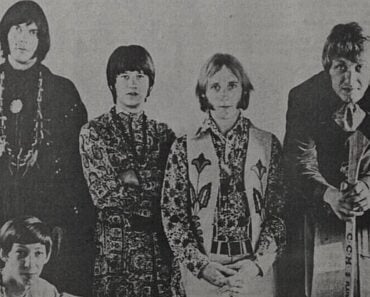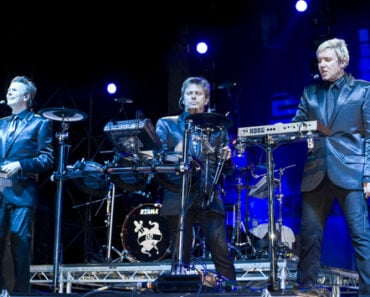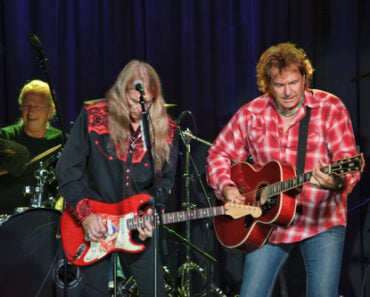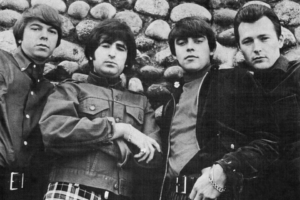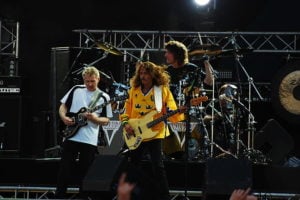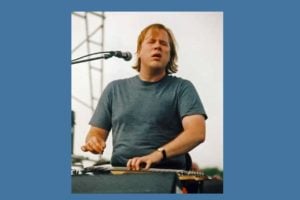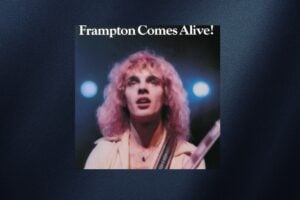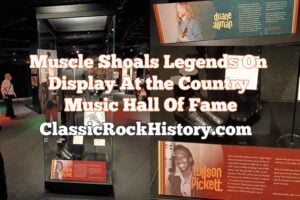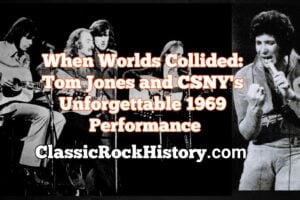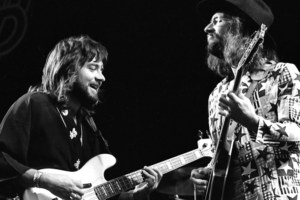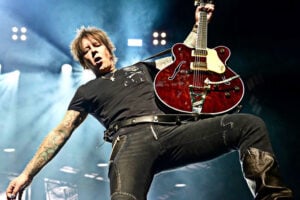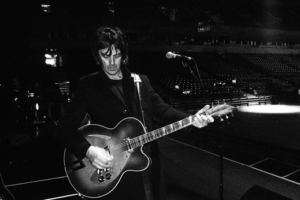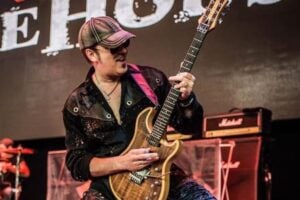
Feature Photo: Sterling Munksgard / Shutterstock.com
Derek Trucks established the group in 1994 in Jacksonville, Florida, beginning with bassist Todd Smallie and gradually expanding to include six core members over nearly a decade of careful assembly. The band’s foundation was built on Trucks’ early experiences touring with established blues and rock legends, experiences that shaped his vision for creating something entirely unique.
The Derek Trucks Band released six studio albums and two live albums during their active years, along with a live DVD that captured their dynamic stage presence. Their 2008 album “Already Free” earned them the Grammy Award for Best Contemporary Blues Album at the 52nd Grammy Awards, while their 2011 recognition as Band of the Year by the Blues Music Awards solidified their position in the contemporary blues landscape. The group’s sound incorporated elements from blues, southern rock, jazz, rhythm and blues, gospel, soul, funk, Hindustani classical music, Afro-beat, and world fusion, creating a distinctive musical identity that reflected the diverse backgrounds of its members.
The Derek Trucks Band remained active until 2010, when Trucks and his wife Susan Tedeschi formed the Tedeschi Trucks Band, incorporating several members from both of their previous groups. This transition marked the end of The Derek Trucks Band’s regular touring and recording, though the legacy of their innovative approach to American roots music continues to influence musicians today. The band’s journey from a young guitarist’s experiment to a Grammy-winning ensemble represents one of the most successful examples of artistic evolution in contemporary blues and rock music.
Derek Trucks
Derek Trucks founded The Derek Trucks Band in 1994 at the age of fifteen, serving as the group’s primary guitarist and creative force throughout their entire existence from 1994 to 2010. Born into a musical family with connections to The Allman Brothers Band, Trucks had already established himself as a prodigious slide guitar talent, touring with established musicians since age nine. His guitar work, performed primarily on a Gibson SG through a Fender Super Reverb amplifier, became the band’s signature sound and served as the foundation for their genre-blending approach.
Trucks appeared on all six of the band’s studio albums, beginning with their self-titled debut in 1997 and continuing through “Already Free” in 2008. His contributions extended beyond guitar work to include songwriting collaborations, particularly evident on later albums where his musical vision helped incorporate elements of Indian classical music and world fusion. His exploration of the sarod, an Indian classical instrument, added unique textures to the band’s sound and demonstrated his commitment to expanding traditional American blues boundaries.
Outside The Derek Trucks Band, Trucks maintained a parallel career as a member of The Allman Brothers Band, joining as a guest musician and eventually becoming a permanent member. This dual role allowed him to honor the legacy of Southern rock while developing his own artistic voice. Following the hiatus of The Derek Trucks Band in 2010, Trucks formed the Tedeschi Trucks Band with his wife Susan Tedeschi, continuing his exploration of collaborative music-making while incorporating several former Derek Trucks Band members into the new project.
Todd Smallie
Todd Smallie joined The Derek Trucks Band as the bassist in 1994, becoming Derek Trucks’ first bandmate and remaining with the group throughout its entire sixteen-year existence. An Atlanta-based jazz and blues musician, Smallie provided the rhythmic foundation that anchored the band’s experimental approach to American roots music. Trucks has credited Smallie as someone he “kind of grew up with,” reflecting their long musical partnership that began when both were relatively young musicians finding their artistic voices.
Smallie’s bass work appeared on all of The Derek Trucks Band’s studio albums, from their 1997 debut through “Already Free” in 2008. His jazz background proved essential in supporting the band’s improvisational approach and their incorporation of complex harmonic structures borrowed from world music traditions. In addition to his instrumental contributions, Smallie provided backing vocals on several recordings, adding depth to the band’s vocal arrangements and supporting the lead vocalists who joined the group over the years.
Following the transition to the Tedeschi Trucks Band in 2010, Smallie continued his musical career but did not join the new ensemble. His steady presence throughout The Derek Trucks Band’s evolution from a teenage guitarist’s project to a Grammy-winning group represents one of the most enduring partnerships in contemporary American music. His combination of technical skill and musical adaptability allowed the band to explore diverse musical territories while maintaining a solid rhythmic foundation.
Yonrico Scott
Yonrico Scott joined The Derek Trucks Band in 1995 as drummer and percussionist, completing the group’s first stable rhythm section alongside Todd Smallie. A Michigan native influenced by Motown traditions, Scott brought formal training to the band, having graduated from the University of Kentucky with a Bachelor of Arts degree in percussion performance. His early childhood introduction to drumming and academic background provided the technical foundation that supported the band’s increasingly sophisticated musical arrangements.
Scott appeared on five of the band’s six studio albums, contributing both percussion and songwriting from their 1997 debut through their later releases. His collaborative relationship with Derek Trucks developed into what Trucks described as “musical ESP,” allowing the band to explore extended improvisational passages with confidence. Scott’s songwriting contributions appeared consistently throughout the band’s catalog, and his vocal abilities added another layer to their live performances and studio recordings.
Beyond his work with The Derek Trucks Band, Scott maintained an active career as a session musician and toured with various artists throughout his career. His seventeen-year tenure with the band, lasting until 2010, represented one of the longest-standing partnerships in the group’s history. Scott passed away in 2019, marking the end of a drumming career that significantly influenced the development of contemporary blues and jam band music.
Kofi Burbridge
Kofi Burbridge joined The Derek Trucks Band in 1999 as keyboardist and multi-instrumentalist, bringing classical training and exceptional versatility to the group’s expanding sound. The brother of bassist Oteil Burbridge, who played with Derek Trucks in The Allman Brothers Band, Kofi contributed keyboards, organ, flute, and backing vocals while also participating in the band’s songwriting process. His formal musical education and multi-instrumental abilities allowed the band to incorporate more complex arrangements and explore diverse musical territories.
Burbridge’s contributions appeared on four of the band’s studio albums, from “Out of the Madness” in 1999 through “Already Free” in 2008. Derek Trucks praised Burbridge as “one of the few musical geniuses” he had worked with, recognizing his ability to adapt to the band’s improvisational approach while adding sophisticated harmonic and melodic elements. His flute work became particularly distinctive in the band’s sound, providing melodic counterpoint to Trucks’ guitar and adding an element that distinguished their music from other contemporary blues and rock groups.
Burbridge transitioned to the Tedeschi Trucks Band in 2010, continuing his musical partnership with Derek Trucks in the new ensemble. His career included work with various other notable musicians and groups beyond his tenure with both Trucks-led bands. Burbridge passed away in 2019, ending a career that significantly influenced the integration of jazz and classical elements into contemporary American roots music.
Mike Mattison
Mike Mattison joined The Derek Trucks Band in 2002 as lead vocalist, recommended by the band’s producers Craig Street and John Snyder. His soulful voice and calm stage presence provided the final element that Derek Trucks felt completed the band’s identity. Mattison’s extensive vocal range allowed the group to tackle a wider variety of material, with Trucks noting that having him was “like having three different vocalists onstage at times.”
Mattison appeared on three of the band’s studio albums, contributing vocals and songwriting from 2002 through “Already Free” in 2008. His collaboration with Derek Trucks on the title track of “Already Free” demonstrated his integration into the band’s creative process beyond his role as vocalist. His ability to adapt to the band’s improvisational approach while maintaining strong vocal performances in various musical styles proved essential to their live shows and studio recordings.
Prior to joining The Derek Trucks Band, Mattison performed in a vocal duo called Scrapomatic with guitarist and vocalist Paul Olsen, occasionally opening for The Derek Trucks Band before becoming a member. Following the band’s transition in 2010, Mattison joined the Tedeschi Trucks Band, continuing his musical partnership with Derek Trucks and several other former bandmates. His career demonstrates the successful integration of traditional soul and R&B vocal approaches into contemporary jam band and blues rock contexts.
Bill McKay
Bill McKay served as The Derek Trucks Band’s initial keyboardist and vocalist from 1995 to 1999, participating in the group’s early development and helping establish their foundational sound. As one of the band’s earliest members, McKay contributed to the songwriting process and appeared on the band’s first two studio albums. His work helped bridge the gap between Derek Trucks’ guitar-centered vision and the more fully arranged sound that would characterize their later releases.
McKay’s keyboard work appeared on the band’s 1997 self-titled debut album and 1999’s “Out of the Madness,” providing harmonic support and occasional lead lines that complemented Trucks’ slide guitar approach. His vocal contributions added depth to the band’s early recordings, though the group would later move toward a more specialized approach to lead vocals. His songwriting credits on these early albums reflect his role in the band’s creative development during their formative years.
Following his departure from The Derek Trucks Band in 1999, McKay’s musical career continued outside the spotlight of the increasingly successful group. His four-year tenure with the band coincided with their evolution from a teenage guitarist’s project to a more professional touring and recording entity. His contributions during this crucial development period helped establish the musical framework that would support the band’s later achievements.
Javier Colon
Javier Colon served as The Derek Trucks Band’s lead vocalist from 2000 to 2002, filling the role between Bill McKay’s departure and Mike Mattison’s arrival. His tenure with the band occurred during a transitional period as they continued to refine their sound and establish their identity as a touring and recording group. Colon’s vocal style contributed to the band’s exploration of different musical approaches during this developmental phase.
While specific album credits for Colon’s work with The Derek Trucks Band are limited in the available documentation, his two-year tenure coincided with the band’s continued touring and musical development. His experience as a professional vocalist helped maintain the band’s ability to perform diverse material while they searched for their permanent vocal identity.
Following his time with The Derek Trucks Band, Colon achieved significant recognition as a solo artist and later as the winner of the first season of NBC’s “The Voice” in 2011. His post-Derek Trucks Band career included multiple solo albums and extensive touring, demonstrating his continued development as a vocalist and songwriter. His success on “The Voice” brought mainstream attention to his abilities and highlighted the caliber of musicians who contributed to The Derek Trucks Band’s evolution.
Count M’Butu
Count M’Butu joined The Derek Trucks Band in 2004 as percussionist, becoming the group’s eldest member and adding diverse rhythmic elements to their already established sound. Unlike other band members, M’Butu did not appear on every tour, serving as a frequent but not constant presence in the band’s live performances. His expertise with various drums and percussion instruments brought additional African influences to the group’s world music approach.
M’Butu’s contributions to The Derek Trucks Band reflected his decades of experience in the Atlanta music scene, where both Derek Trucks and Yonrico Scott had known him long before he joined the group. His work incorporated significant African influences while drawing from his Southern roots, having lived most of his life in Sandersville, Georgia. This combination of influences aligned perfectly with the band’s commitment to blending diverse musical traditions.
As the band’s eldest member, representing a generational span that included musicians in their twenties through sixties, M’Butu provided both musical expertise and historical perspective. His presence connected the band to earlier traditions of American and African percussion while supporting their contemporary explorations. M’Butu passed away in 2021, marking the end of a long career that bridged multiple generations of American roots music.
Check out similar articles on ClassicRockHistory.com Just click on any of the links below……
Complete List Of Derek Trucks Band Songs From A to Z
Top 10 Derek Trucks Band Songs
Top 10 Tedeschi Trucks Band Songs
Read More: Artists’ Interviews Directory At ClassicRockHistory.com
Read More: Classic Rock Bands List And Directory




